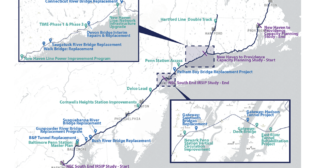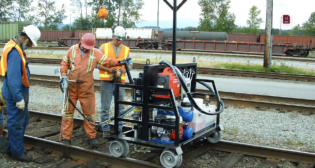
Transit Briefs: CTA, LACMTA, Metro Transit (Minn.)
Written by Marybeth Luczak, Executive Editor
CTA’s “Transit-Supportive Development Plan” for its Red Line Extension Project has been recognized with a 2023 Strategic Plan Award from the American Planning Association-Illinois Chapter (APA-IL). (CTA Photograph)
Chicago Transit Authority (CTA) earns a strategic plan award for its $3.6 billion Red Line Extension Project and reports downward trends in crime. Also, more than 250,000 people are now enrolled in Los Angeles County Metropolitan Transportation Authority’s (LACMTA) low-income fare program; and Metro Transit workers in Minneapolis, Minn., vote to authorize a strike.
CTA
The “Transit-Supportive Development Plan” (see above) for CTA’s Red Line Extension Project has received a 2023 Strategic Plan Award from the American Planning Association-Illinois Chapter (APA-IL). The agency said the award recognizes the “vision and plan for transformational community impact” related to its $3.6 billion project, which will build a 5.6-mile Red Line extension from 95th Street to 130th Street and add four new, fully accessible rail stations near 103rd Street, 111th Street, Michigan Avenue, and 130th Street.
Led by CTA in partnership with Chicago’s Department of Planning and Development (DPD) and community stakeholders within the Red Line Extension Project footprint, the Transit-Supportive Development Plan is a guide for the future development of Far South Side communities. According to CTA, it is “reflective of the vision of those who currently reside and do business in these communities” and was adopted by the Chicago Plan Commission in May 2023.
The plan addressed the following four goals:
- Increase residential development, variety and affordability.
- Strengthen commercial, retail and mixed-use development.
- Enhance public space and greater transportation access.
- Encourage economic development, business and employment generators.
The Red Line, CTA’s most-traveled rapid transit line, provides 24-hour service between Howard on the North Side and 95th/Dan Ryan on the South Side through downtown Chicago. CTA recently announced that its extension project is entering the next phase of the Federal Transit Administration’s “New Starts” program and is now in line for a grant totaling $1.973 billion.
“Equity and inclusion are at the heart of the CTA’s Red Line Extension Project,” CTA President Dorval R. Carter Jr. said. “Extending the Red Line to the Far South Side will create access to transit and renewed investment in communities that have been neglected for too long. I thank the American Planning Association-Illinois Chapter for recognizing our commitment to being a catalyst for positive change on the Far South Side of Chicago.”
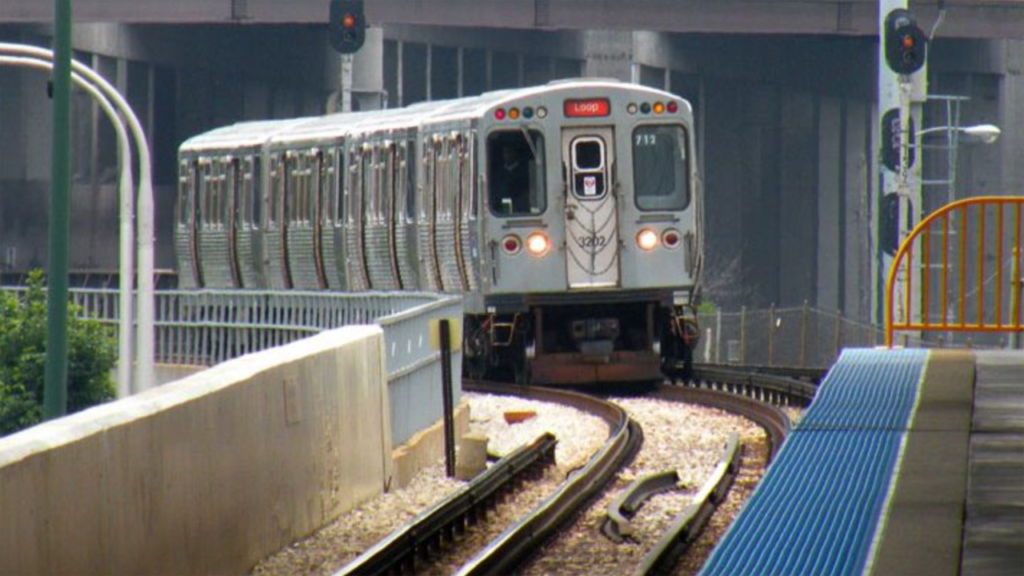
Separately, CTA on Sept. 12 reported that crime in August continued a downward trend in 2023. According to Chicago Police Department (CPD) statistics, overall transit crime was down 12% year to date and 35% compared with August 2022; and violent crime was down 16% year to date, and 13% month to date (August 2023 vs. August 2022).
The transit agency said it teams with CPD to deter crime on or near its properties and assists in investigations when a crime occurs. CTA supplements CPD’s efforts with its network of more than 33,000 security cameras; hundreds of personnel deployed across the system each day, who are trained and focused on rider “comfort and safety”; and contracted security guards and K-9 units addressing issues like customer behavior and fare evasion.
“I’m encouraged that the downward trends in crime we’ve seen have continued through the summer, at a time when ridership has reached the highest levels since the start of the pandemic,” Dorval Carter said. “My hope is that the data helps reinforce to our riders and employees that the CTA is getting safer every day.”
“Our officers work across all watches throughout the transit system to strengthen safety for those utilizing the CTA,” said Joe Bird, Commander of the CPD Public Transportation Section. “In addition to the efforts of our officers and CTA security, we will continue leveraging technology and community engagement to reduce crime across the system.”
LACMTA
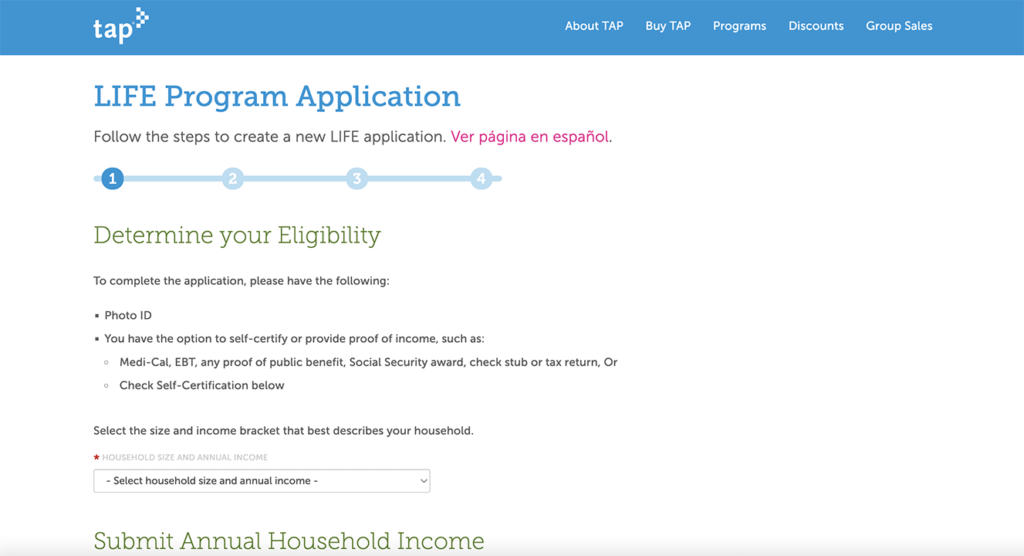
LACMTA’s “Low-Income Fare is Easy” (LIFE) program now has more than 250,000 people enrolled, the transit agency reported Sept. 12. The program provides qualified Los Angeles County residents with free rides or deeply discounted fares on 13 area transit systems. Launched in 2019, it has delivered more than 17 million free or discounted rides since late 2021.
According to LACMTA, LIFE applicants must be 18 years or older and earn $44,150 a year or less, as defined by the Department of Housing and Urban Development (HUD). Applicants who are under the age of 18 must be enrolled with an adult as head of the household. For a family of four, the income threshold is $63,050. Those new to the program will receive a free 90-day pass. After the first 90 days, riders can either load 20 free rides or purchase a discounted pass from any of the 13 LIFE participating transit agencies.
LACMTA reported that since January 2022, it has hired 24 community-based organizations to assist with the dissemination of LIFE collateral materials across Los Angeles County. Additionally, late last year it established a pilot program with the Department of Public Social Services in which case workers share details about the program; to date, more than 13,000 people have enrolled this way.
The LIFE program works with two administrators: FAME Assistance Corporations, a community partner that addresses social and economic inequalities affecting low-income, underserved communities in Los Angeles, and the International Institute of Los Angeles, which is responsible for screening eligibility, outreach, accountability, transportation subsidy security, record keeping training and procedures for distributing transportation subsidies such as taxi vouchers. They team with more than 150 agencies in their respective areas to support enrollment, outreach and distribution of four-ride tickets and taxi vouchers to help riders get to doctor visits, shelters, food banks and other appointments, according to LACMTA.
“Transportation is the second largest household expense behind housing, and we’re committed to reducing those costs for families,” LACMTA CEO Stephanie Wiggins said. “We’ve focused on expanding LIFE Program participation over the last two years, nearly tripling participation in the last two years. Our work continues as we strive to enroll even more people in the LIFE program through partnerships with community-based organizations and local governments.”
Metro Transit
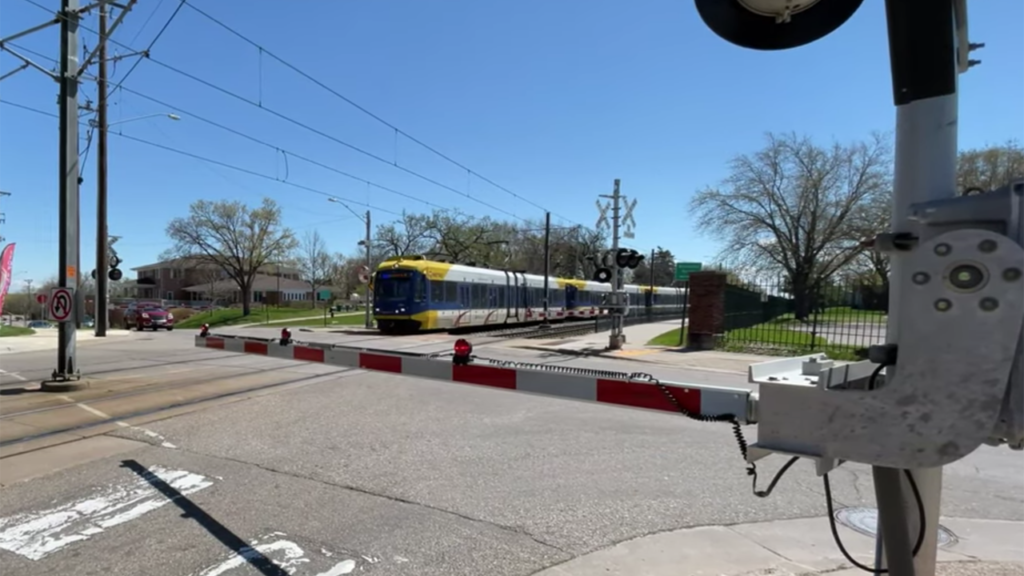
On Sept. 11, workers voted to authorize a strike at Metro Transit, which provides bus, light rail and commuter rail services as well as resources for those who carpool, vanpool, walk or bike in the Twin Cities, reported KARE 11, NBC’s Minneapolis affiliate. According to the Amalgamated Transit Union (ATU) Local 1005, which represents approximately 2,400 Metro Transit workers, 94% of members voted “yes.” The vote took place during the union’s July 2023 meeting, just prior to the Aug. 1 expiration of the most recent three-year contract, KARE 11 said.
Increased staffing is a priority in this round of negotiations, ATU Local 1005 President Ryan Timlin told the media outlet. “At least a month or two ago, we were 400 operators less than we were before the pandemic, but it’s just not operators,” he said. “We’re missing out on helpers who help clean up the platforms. They also assist mechanics with getting the buses fueled and ready to go out and be driven. We haven’t hired (in) a while in the rail support area, which does the track maintaining and signals for the tracks … and also they work on the electrical lines and the communications between the train and the other systems.”
According to KARE 11, “there’s no guarantee a strike will materialize,” as the union “would still have to provide a 10-day strike notice, among other steps before a works stoppage.”
The Metropolitan Council—the regional policy-making body, planning agency, and provider of essential services in the seven-county Twin Cities metro area—said in a statement to media outlet that “We are not anticipating any immediate service impacts at this time. Our employees are integral to serving those who rely on transit and we look forward to reaching an agreement.”
Timlin said negotiations are scheduled for Sept. 22 and Oct. 5, according to KARE 11.


